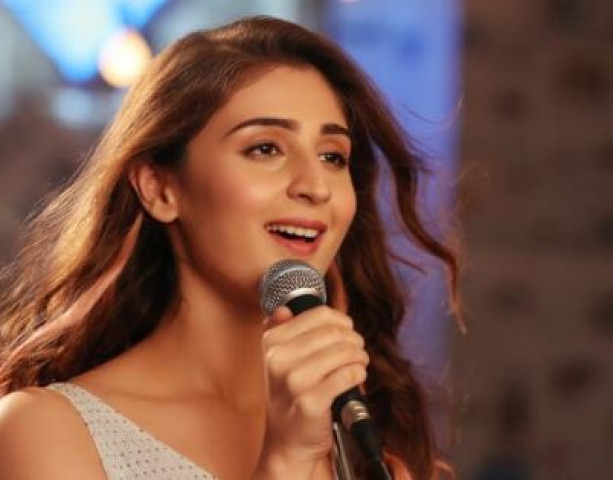Bollywood should have more female solo songs : Dhvani Bhanushali
While women led films have increased in India, solo songs for female playback singers have not been in focus

Bollywood should have more female solo songs : Dhvani Bhanushali
On Dilbar, she was well complemented by Neha Kakkar, who has become the voice of recreations and fastpaced songs in the film industry.
Singer-composer Payal Dev, known for singing in films including Salman Khan-starrer Dabangg 3, is also rooting for more songs in women''s voices but not just dance numbers, according to Outlook India.
"We should have more in our movies rather than just dance numbers and party songs. Fortunately, we have been seeing that change a bit and a lot of female musicians are coming forward in Bollywood or independent music," she said.
She knows that Bollywood songs have a lot to do with what the movie script demands. So, here comes the significant role of singles.
"I myself have composed and sung singles/non-film songs, so I feel in independent songs, one doesn''t face any barrier or follow a particular brief of character. With singles, one can express themselves and with the kind of digital mediums we have, it has been easy to do so," said Payal.
Singer Shilpa Rao, who is enjoying the success of her song Ghungroo, co-sung with Arijit Singh for Hrithik Roshan and Tiger Shroff-starrer War, said: "I guess it''s quite natural that everyone feels that there are fewer female songs but I think that is a change that is required, especially when there is a global change happening... women actresses, directors, writers, musicians all over the world are constantly talking about having a fair chance to work."
It''s not just the women but also men like composer Lalit Pandit who feel that solo female songs have almost "vanished in recent times".
"Even if it''s a background song and is picturised on a woman, the voice of the song is of a man! This should be from a music company''s point of view as they might be feeling male songs make more money. This could be a fact and a bitter truth. And for that reason, songs are more male-oriented in female-oriented films," said Lalit, who has given some great hits with brother Jatin especially in the nineties.
In fact, he thinks that dance numbers like Munni badnam hui are where female voices have "excelled".
Kumar Taurani of Tips Industries also shared examples of Bollywood dance numbers that work in women''s voice.
"They (men) bring in the numbers, so a little more priority is there but then there have also been songs like Chikni Chameli and Chamma chamma, so female lead songs also work," he shared.
One of the 90s'' favourite singers Alka Yagnik, who is currently seen in the role of mentor in the show Sa Re Ga Ma Pa Li''l Champs, shared that back then the trend was different. It was more about one or two singers recording the entire soundtrack of a film.
"The kind of songs they were, those types of songs used to suit the singers'' voices. We used to sing the entire album, so an identity used to be made. There used to be a face with a voice, and the songs were good ones. They used to be soulful songs, good composition. We all used to have an identity," the Aaye Ho Meri Zindagi Mein singer was quote by Outlook India.
"Nowadays there are so many singers and music of that calibre is not being made, so if there are six songs in one album then every song is sung by different singers. There is a crowd of singers. They get lost in the crowd," she added.
But Shilpa says women don''t need a special treatment. "In fact nobody needs special treatment. All we need is proper and equal opportunities of work."
Have something to add to the story? Share in the comments below.



















COMMENTS
Comments are moderated and generally will be posted if they are on-topic and not abusive.
For more information, please see our Comments FAQ